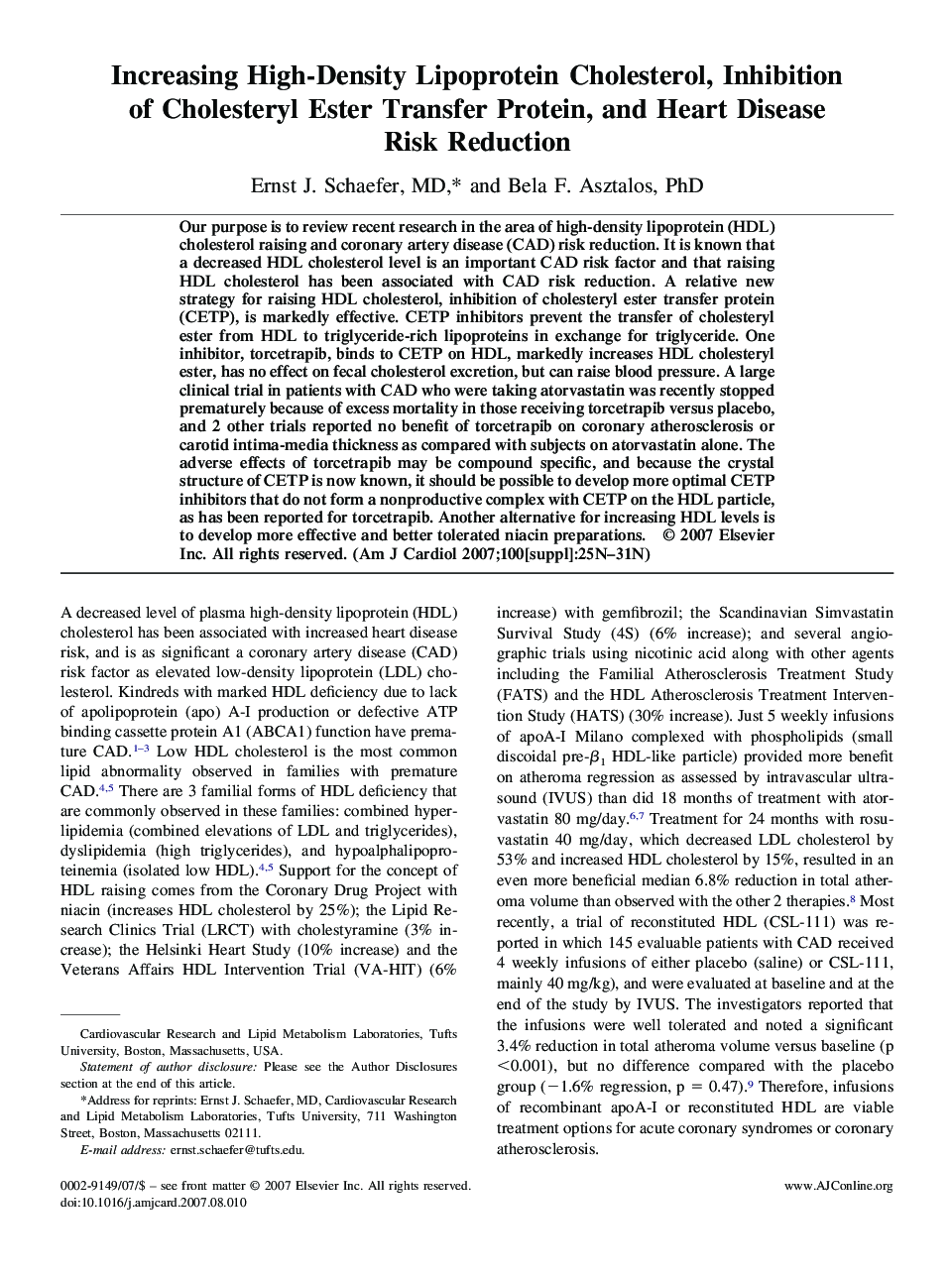| کد مقاله | کد نشریه | سال انتشار | مقاله انگلیسی | نسخه تمام متن |
|---|---|---|---|---|
| 2860245 | 1572352 | 2007 | 7 صفحه PDF | دانلود رایگان |

Our purpose is to review recent research in the area of high-density lipoprotein (HDL) cholesterol raising and coronary artery disease (CAD) risk reduction. It is known that a decreased HDL cholesterol level is an important CAD risk factor and that raising HDL cholesterol has been associated with CAD risk reduction. A relative new strategy for raising HDL cholesterol, inhibition of cholesteryl ester transfer protein (CETP), is markedly effective. CETP inhibitors prevent the transfer of cholesteryl ester from HDL to triglyceride-rich lipoproteins in exchange for triglyceride. One inhibitor, torcetrapib, binds to CETP on HDL, markedly increases HDL cholesteryl ester, has no effect on fecal cholesterol excretion, but can raise blood pressure. A large clinical trial in patients with CAD who were taking atorvastatin was recently stopped prematurely because of excess mortality in those receiving torcetrapib versus placebo, and 2 other trials reported no benefit of torcetrapib on coronary atherosclerosis or carotid intima-media thickness as compared with subjects on atorvastatin alone. The adverse effects of torcetrapib may be compound specific, and because the crystal structure of CETP is now known, it should be possible to develop more optimal CETP inhibitors that do not form a nonproductive complex with CETP on the HDL particle, as has been reported for torcetrapib. Another alternative for increasing HDL levels is to develop more effective and better tolerated niacin preparations.
Journal: The American Journal of Cardiology - Volume 100, Issue 11, Supplement 1, 3 December 2007, Pages S25–S31